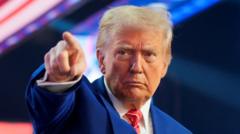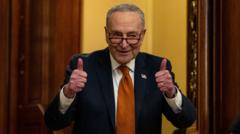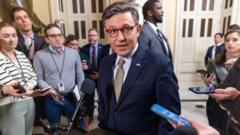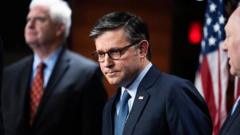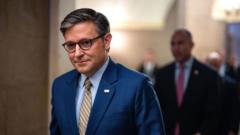The recent pardon of Hunter Biden has ignited discussions about evolving norms surrounding the exercise of presidential power, mirroring similar controversies from the Trump era. Critics argue that Biden is betraying his previous stance, while supporters insist he is merely exercising his right to protect family.
Hunter Biden's Pardon: A Shift in Presidential Pardoning Norms
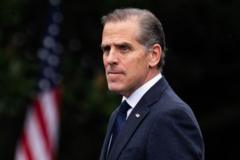
Hunter Biden's Pardon: A Shift in Presidential Pardoning Norms
President Biden's decision to pardon his son Hunter marks a significant shift in the political landscape’s approach to presidential pardons.
The announcement of Hunter Biden’s pardon on the Sunday evening after Thanksgiving took many by surprise. President Joe Biden, who previously denied any intention to pardon his son—convicted of gun and tax evasion—changed his stance, stating that “there has been an effort to break Hunter.” He emphasized that Hunter’s sobriety and resilience in the face of challenges had motivated this decision, framing the pardon as an act of familial support against perceived injustices.
This situation raises questions reminiscent of the Trump administration, where former President Donald Trump also faced scrutiny for using his pardoning power for allies mired in criminal cases tied to his presidency. Trump's final days in office saw a series of pardons that evaded standard White House procedures, sparking vast criticism yet scant political repercussions.
Under Biden’s recent decision, political observers speculate a similar lack of consequences may follow. Notably, Jared Polis, the Democratic governor of Colorado, expressed disappointment, suggesting the decision would "tarnish" Biden's legacy. However, with Biden's presidency nearing its conclusion, the implications of his action seem to dwindle amid the impending transition to a potentially Trump-led government.
The landscape of presidential pardons might be fundamentally altered, as Biden's actions signal a willingness to deviate from established norms. This new reality suggests that both political sides may face challenges in contesting jubilee actions taken by future leaders.
Moreover, as Trump returns to power, potential consequences could arise, including renewed pardons for associates involved in investigations during Biden’s term and for individuals implicated in the January 6, 2021 Capitol assault.
As this dialogue unfolds, the significance of Hunter Biden’s pardon seems poised to reshape the understanding and expectations of presidential pardoning authority in the years to come.
This situation raises questions reminiscent of the Trump administration, where former President Donald Trump also faced scrutiny for using his pardoning power for allies mired in criminal cases tied to his presidency. Trump's final days in office saw a series of pardons that evaded standard White House procedures, sparking vast criticism yet scant political repercussions.
Under Biden’s recent decision, political observers speculate a similar lack of consequences may follow. Notably, Jared Polis, the Democratic governor of Colorado, expressed disappointment, suggesting the decision would "tarnish" Biden's legacy. However, with Biden's presidency nearing its conclusion, the implications of his action seem to dwindle amid the impending transition to a potentially Trump-led government.
The landscape of presidential pardons might be fundamentally altered, as Biden's actions signal a willingness to deviate from established norms. This new reality suggests that both political sides may face challenges in contesting jubilee actions taken by future leaders.
Moreover, as Trump returns to power, potential consequences could arise, including renewed pardons for associates involved in investigations during Biden’s term and for individuals implicated in the January 6, 2021 Capitol assault.
As this dialogue unfolds, the significance of Hunter Biden’s pardon seems poised to reshape the understanding and expectations of presidential pardoning authority in the years to come.

